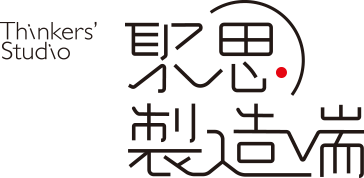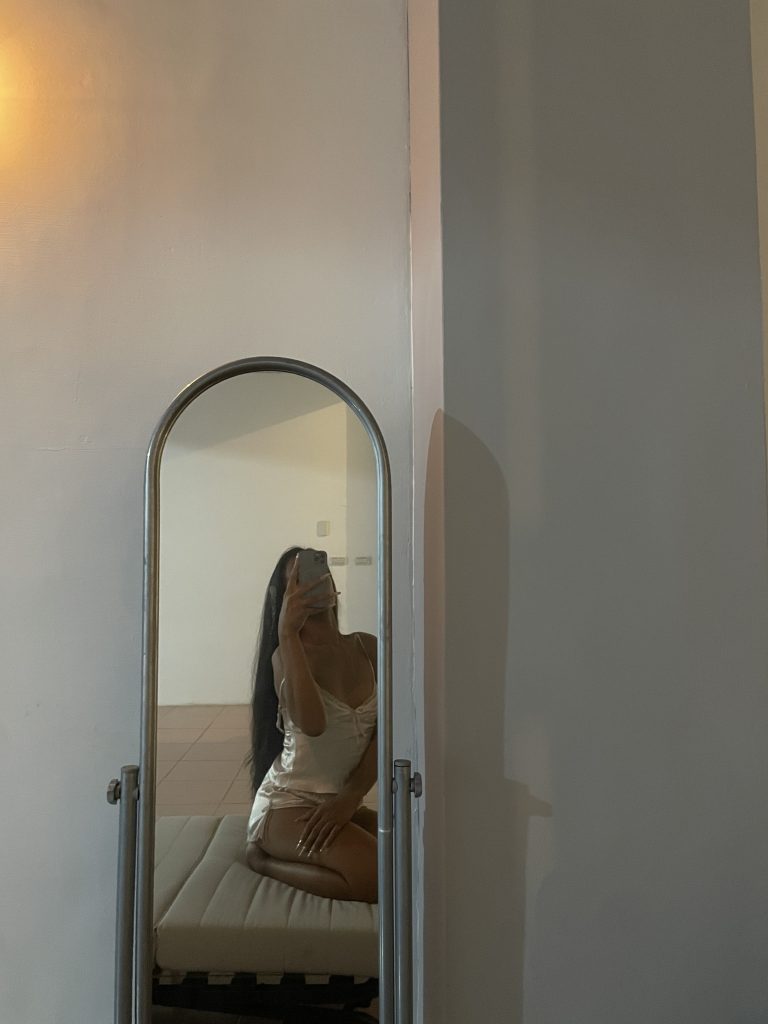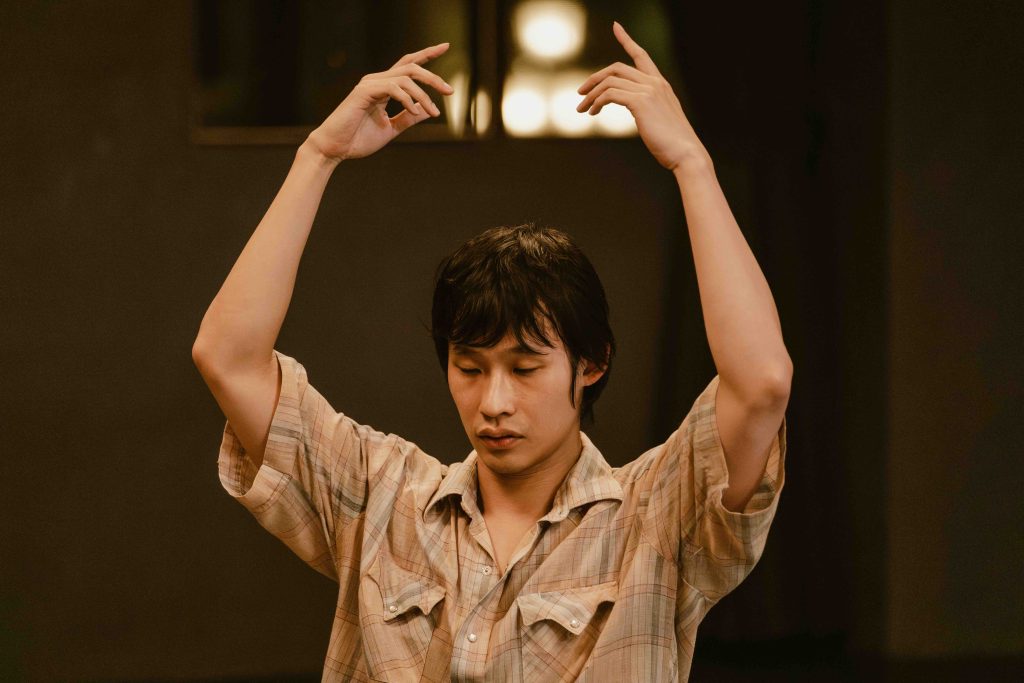“During a one-month residency in Taoyouan, Taipei, Taiwan, I collaborated with Yu Ning, a young cultural expert from Taiwan, to initiate a process with the theme of ‘Food.’ In this context, food is understood as a universal element that not only permeates every day life but also serves as an integral part of experience of all living beings on earth.”
Process Map
“Mind map, this activity was carried out to explore the topic of food across various layers of life using the triangle game method. I(Ayu) learned this mind mapping method from Guy cools, a dramaturg from Canada. From my experience in previous creative progress, I found this method to be highly effective in opening perspectives, broadening insights, and revealing various possibilities within a topic. Therefore, at the beginning of the process with Yu Ning, I shared this method with her, and it greatly assisted us in understanding ourselves and each other’s cultures.”
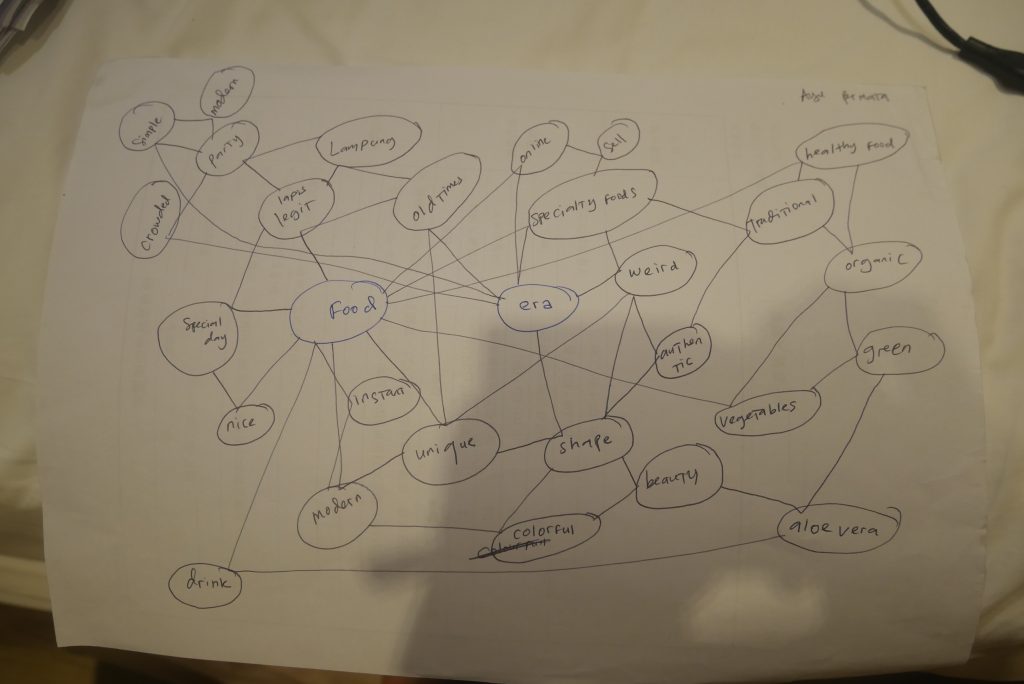

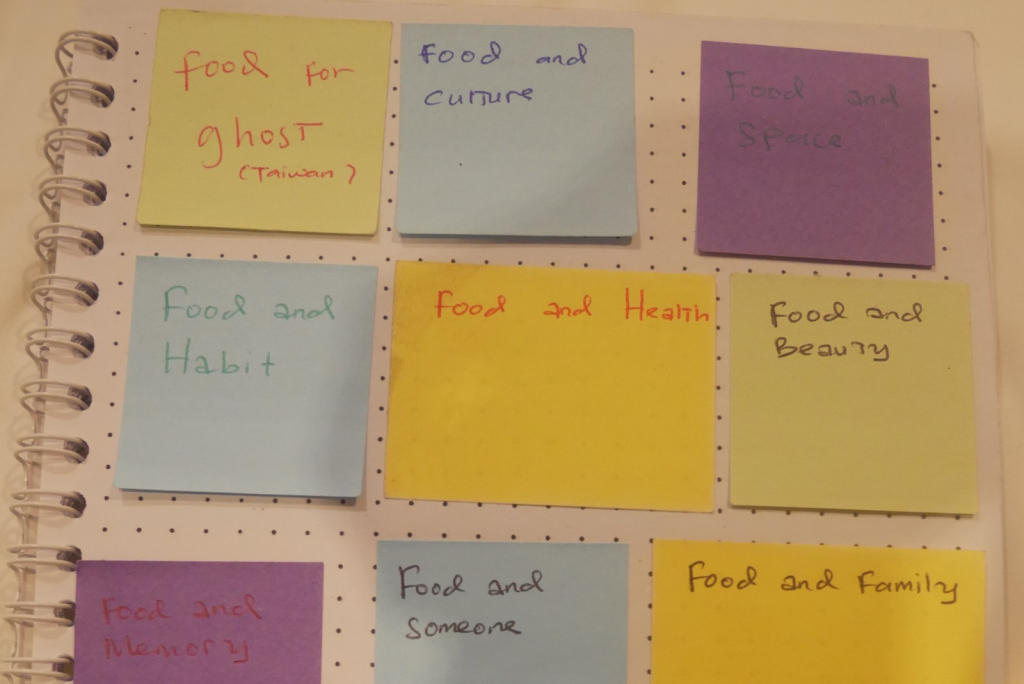
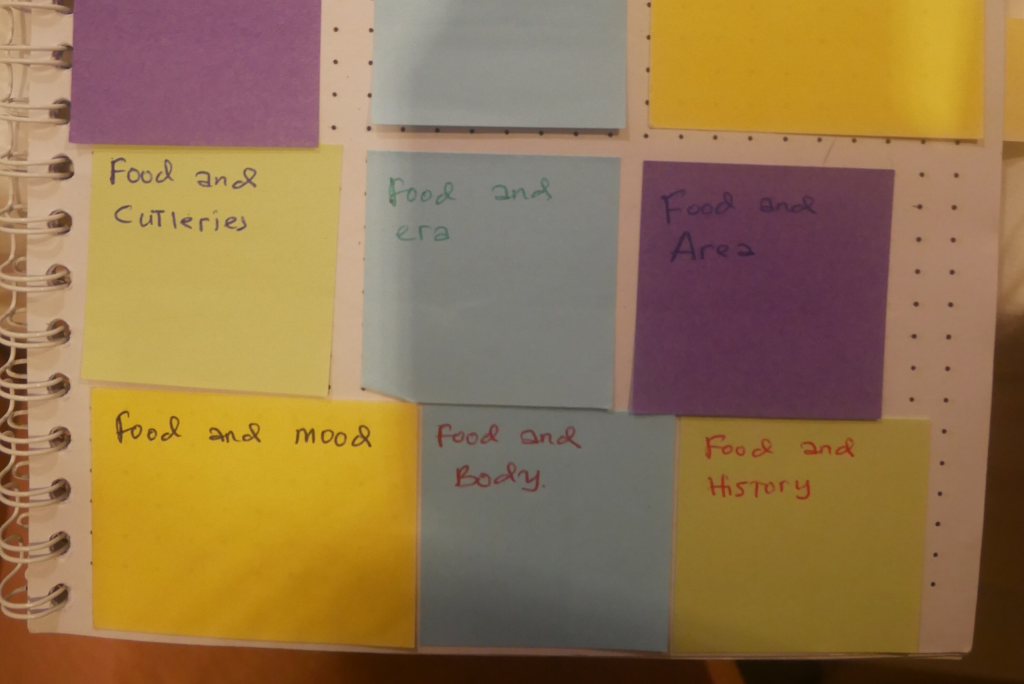
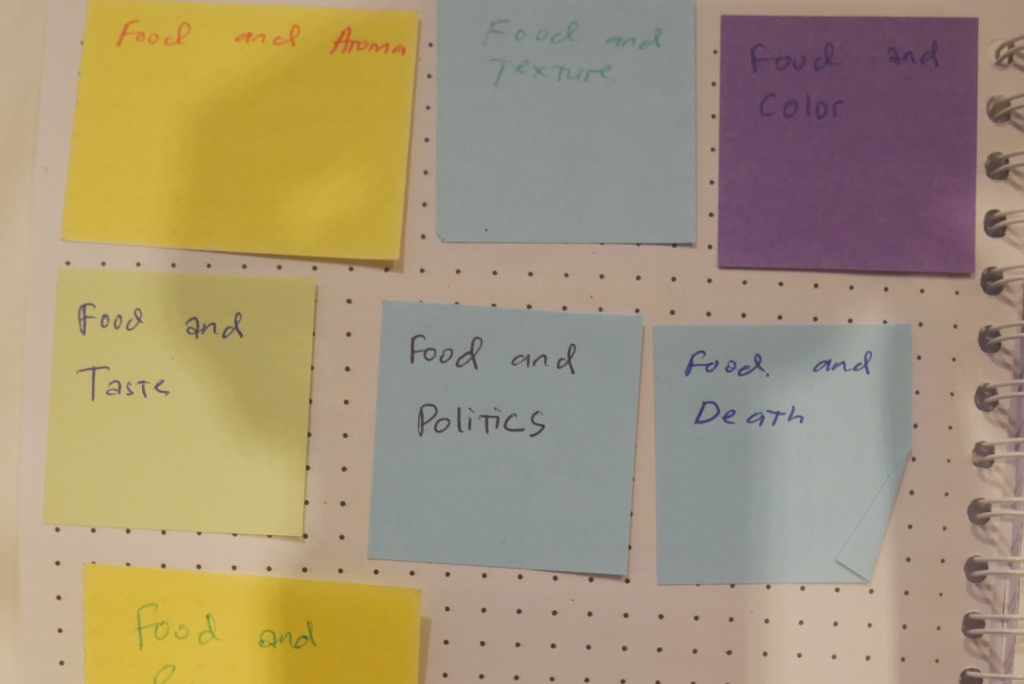
Field research
This field research was the aspect we enjoyed most. We visited various location to sample Taiwanese an Indonesian cuisine, and explore places of worship and historical building to gain a deeper understanding of the cultural in Taiwan. Our visited included Daxi Old Street, Zhongzhen Market, Matsu New Village Culture,Taoyuan Jingfu Temple, Taipei Grand Mosque, Royal Restaurant (serving Indonesian food), Maya Warung Indonesia near Taoyuan Station, and many other places. Through these visits, we were able to gain a more profound insight into the local culture and history.
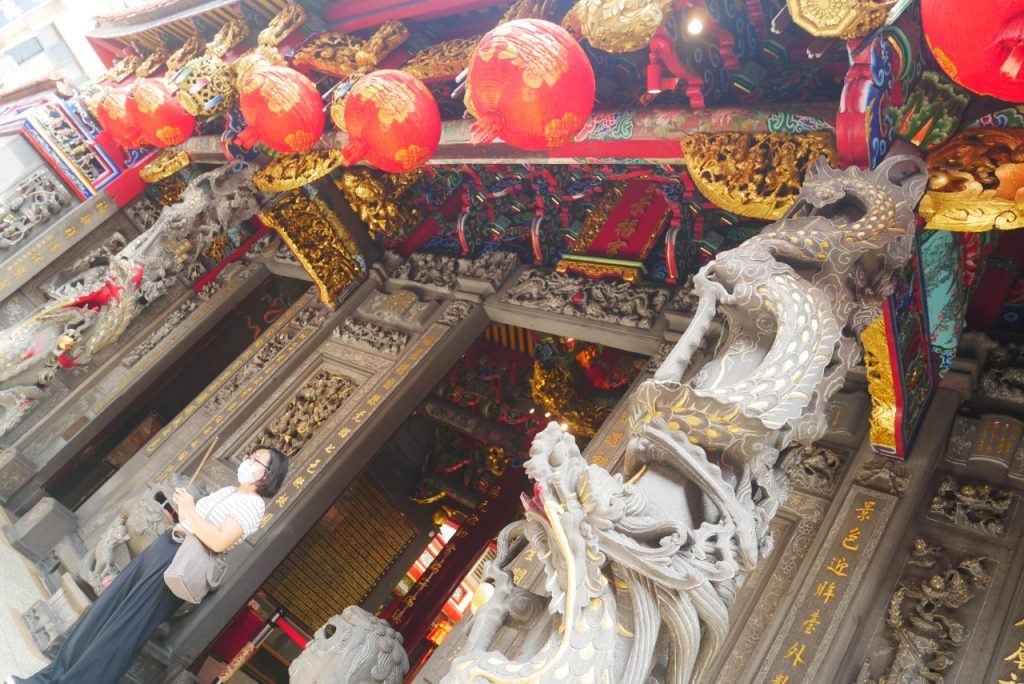
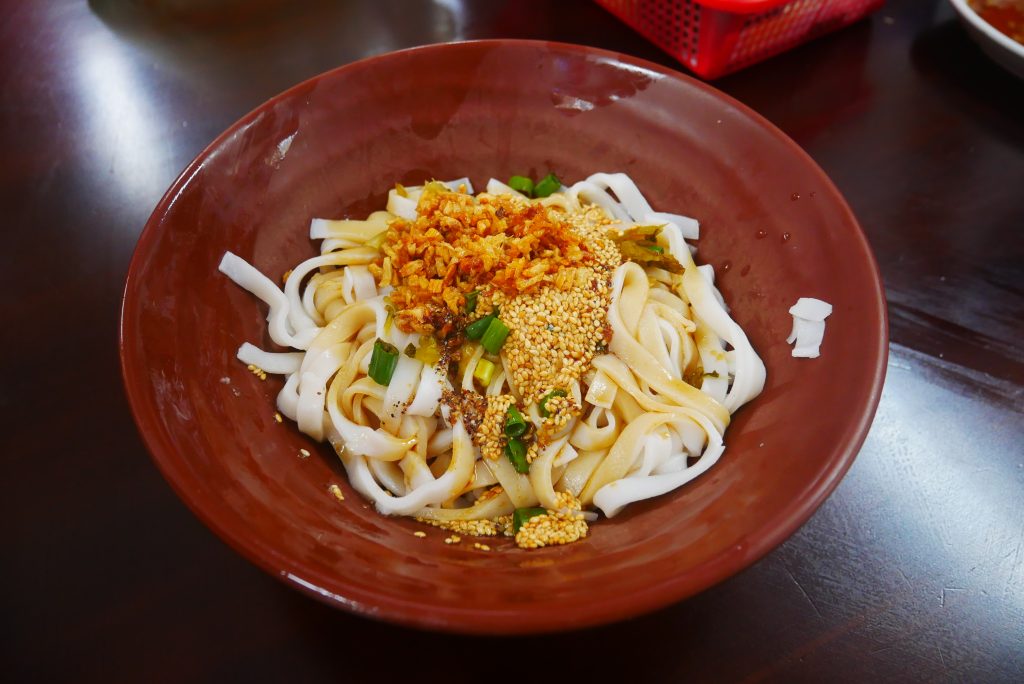
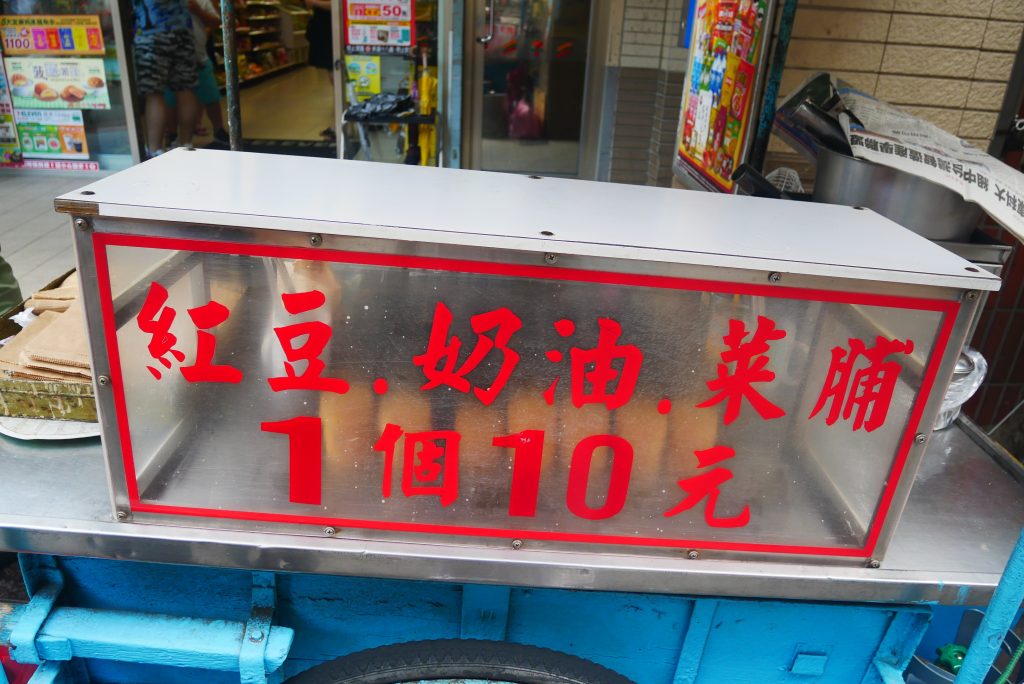
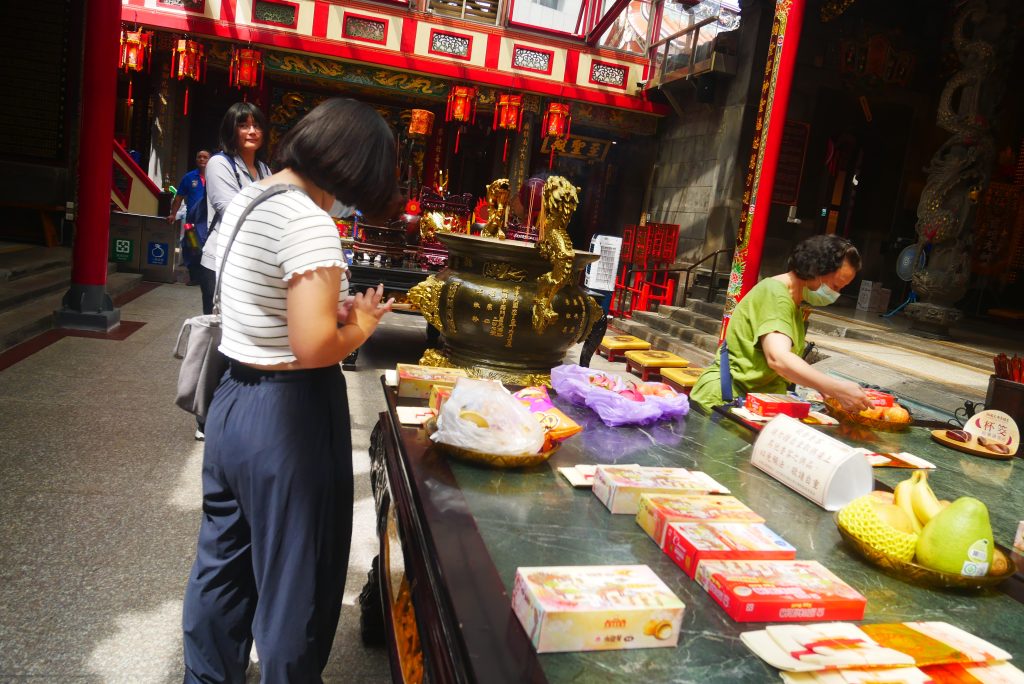
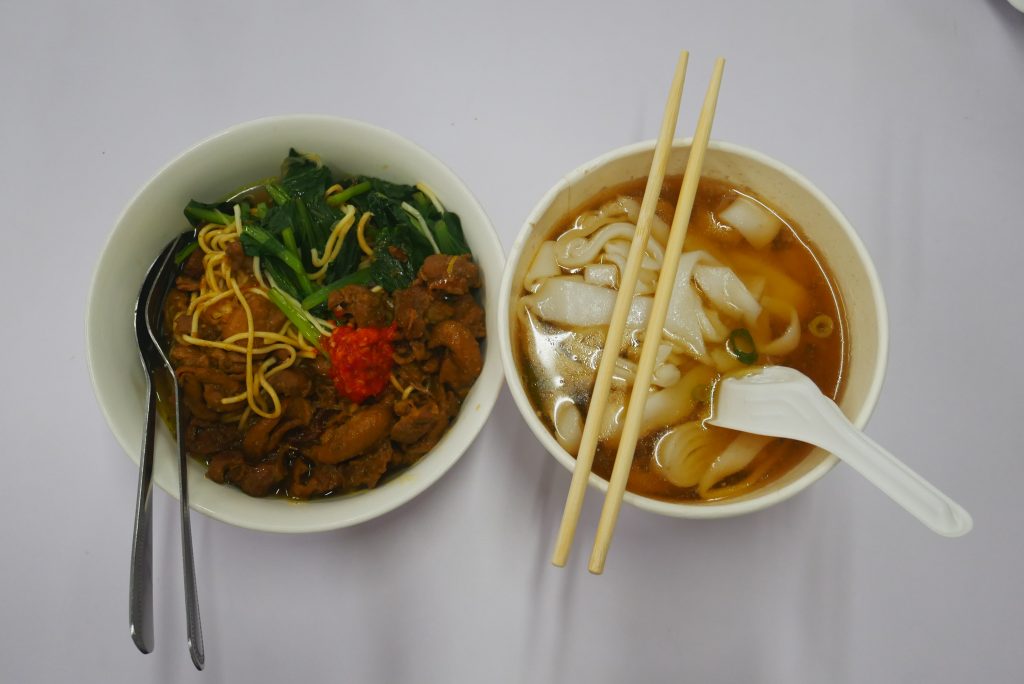
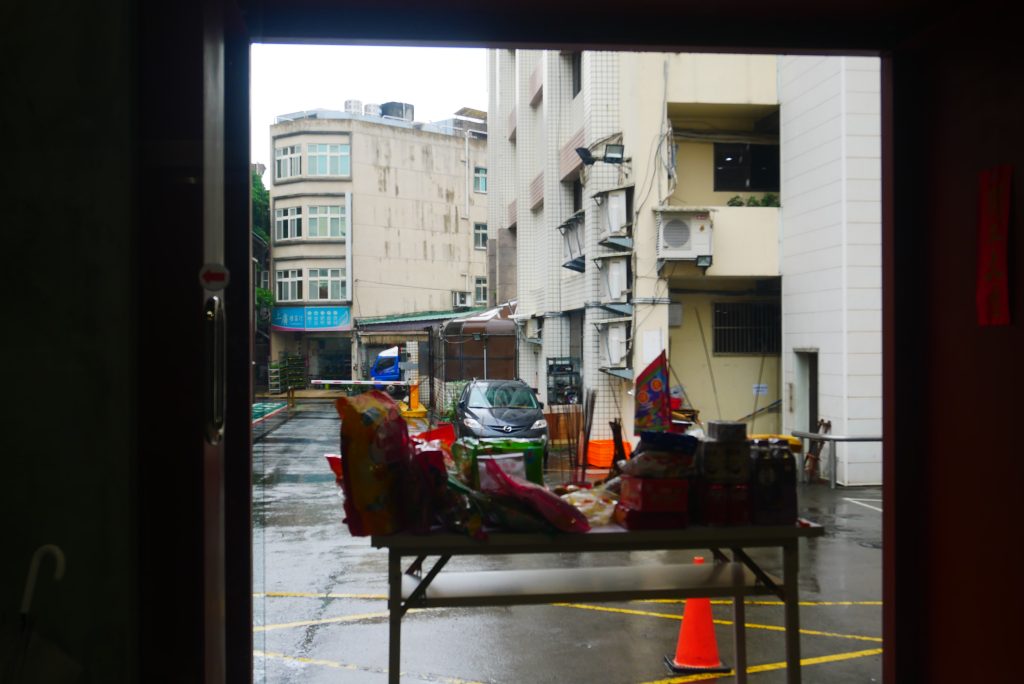
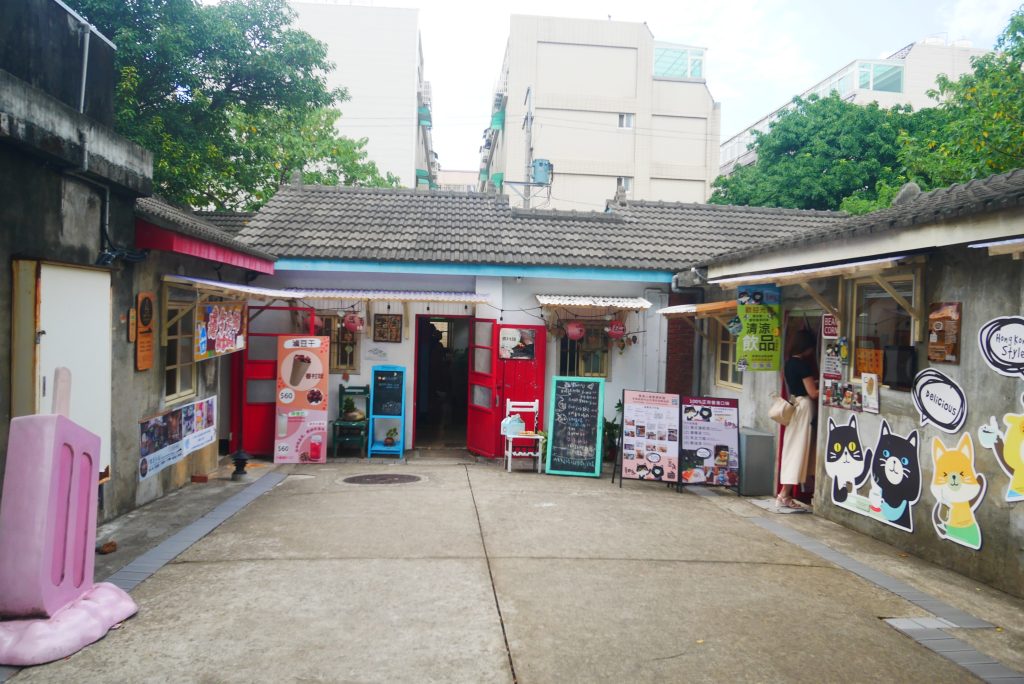
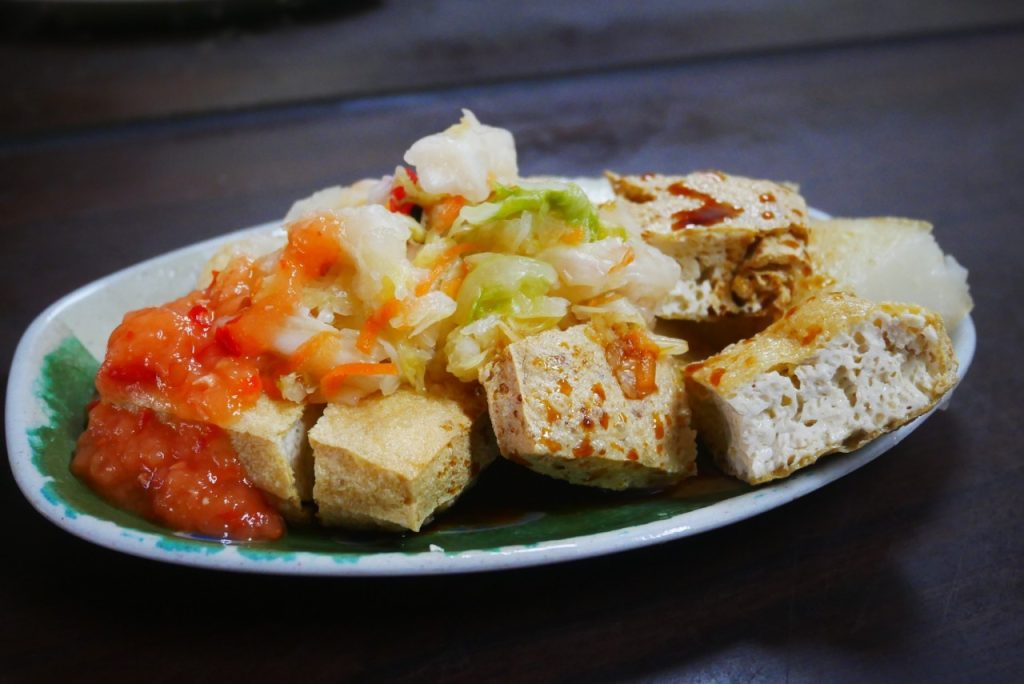
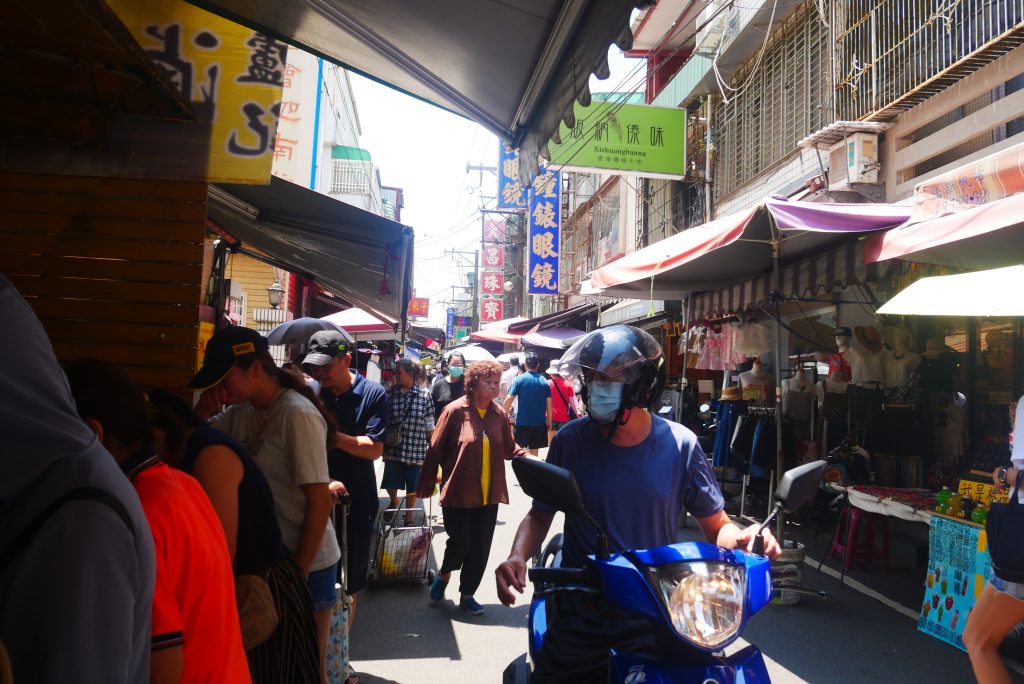
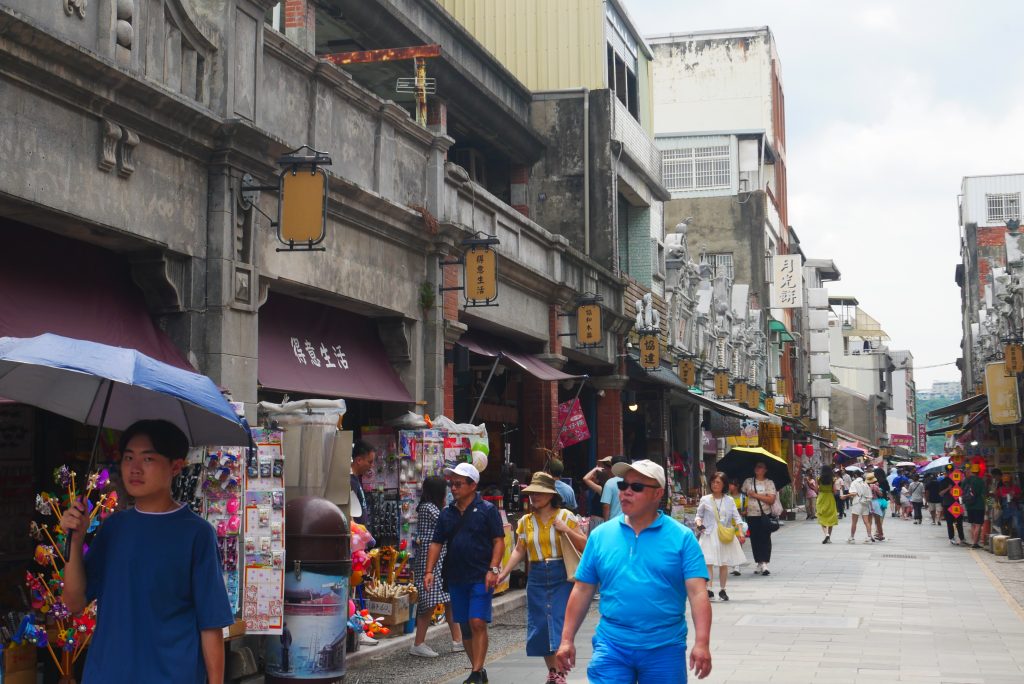
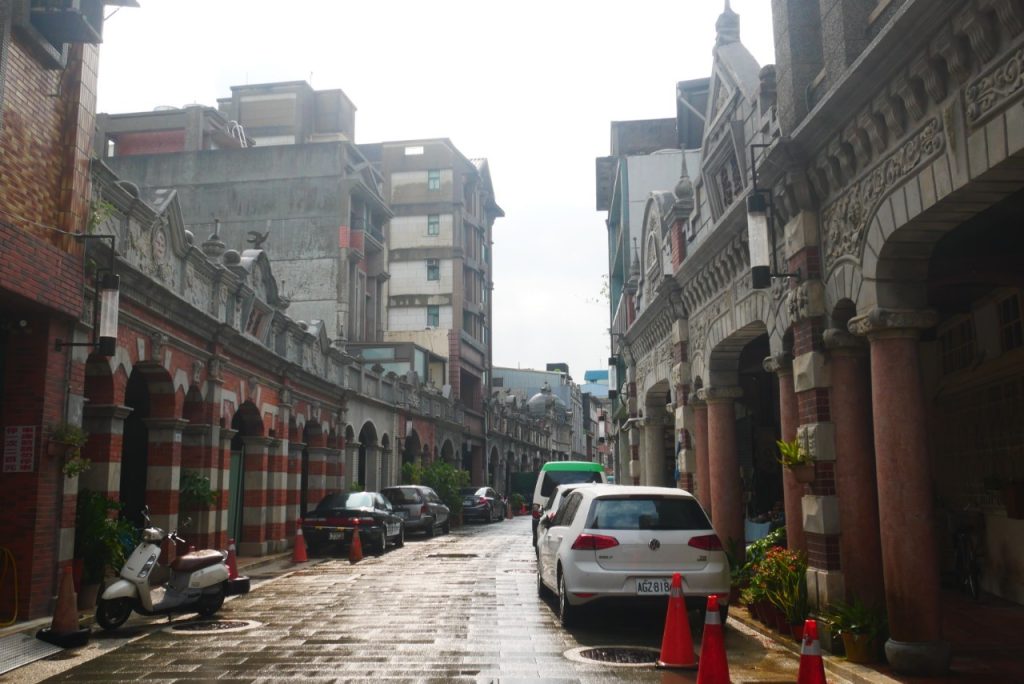
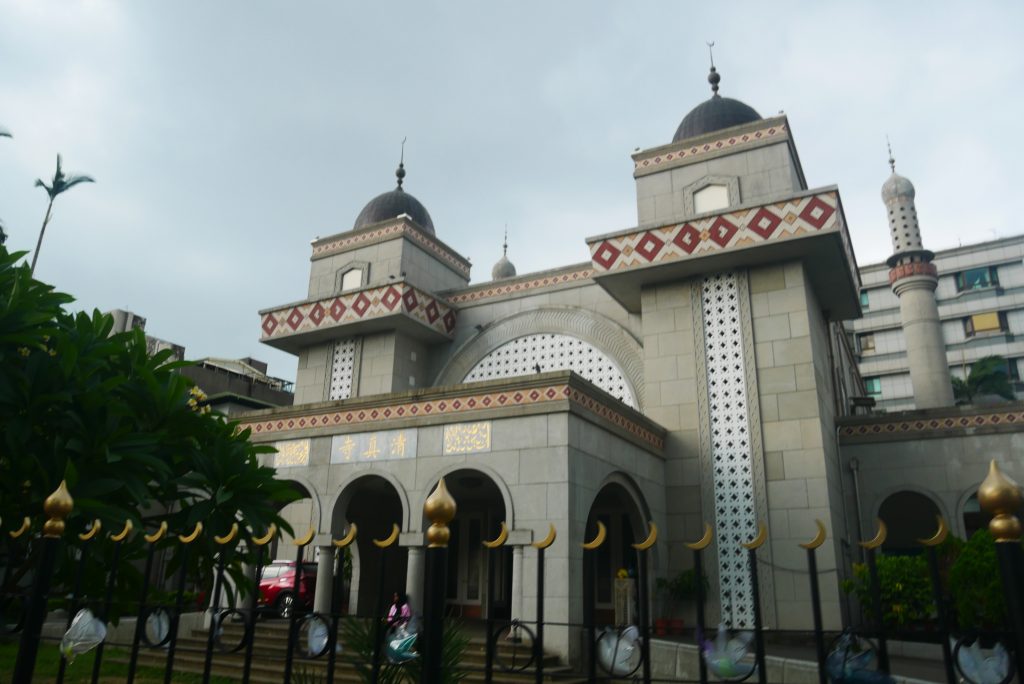
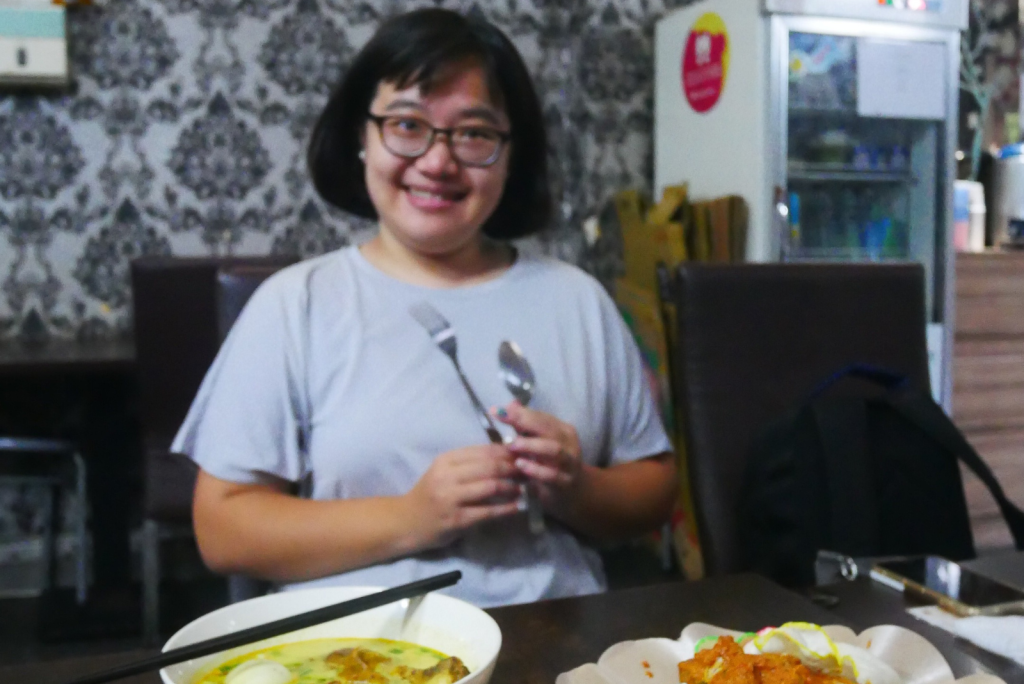
Noodles are the food that Ayu and Yu Ning chose to be the “tool” or intermediary in the process.

Mie ayam from Indonesia and Mi Gan
Rereading the mind maps, looking back at the photos from the field research, discussing the two-week process and finding further keywords:
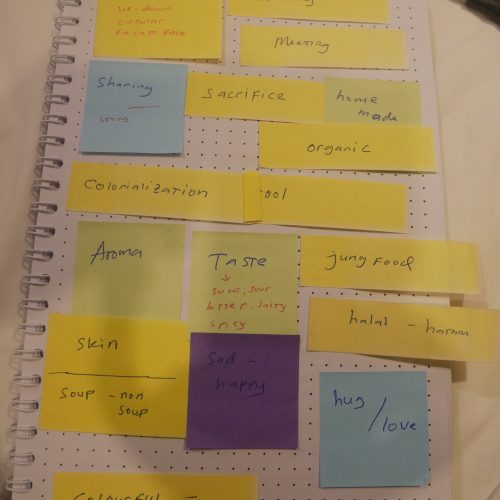
Workshop
In conducting training related to the ongoing process, Yu Ning focused on encouraging participants to recall their favorite foods and explore the memories and stories between the participants and those foods. I, on the other hand, conducted a workshop themed around embodiment, which is still closely related to the concept of food. I explored the essence of food itself, highlighting how food serves as a medium for communication, meetings, conversations, culture, and even carries the memories of colonial history experienced by a country. In this training, I used the gaze method, where two participants face each other with a distance of about two spans between them. The two participants move together while maintaining that distance, creating an experience akin to a game. Participants are given the freedom to lead or follow, according to their own decisions. I then introduced challenges involving variations in tempo, volume, and movement levels to enrich the training experience.
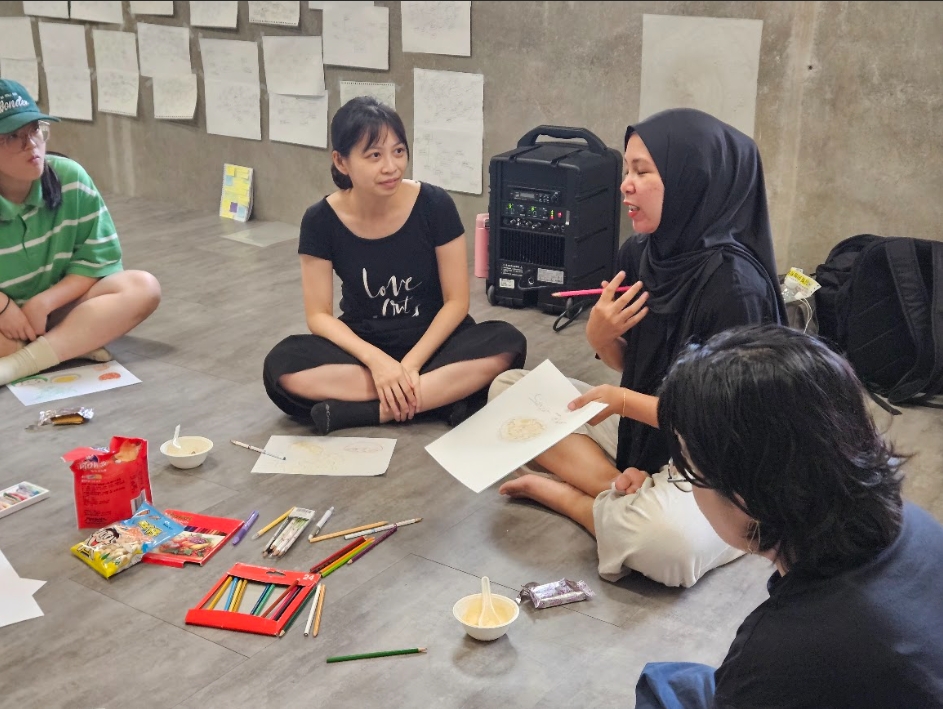
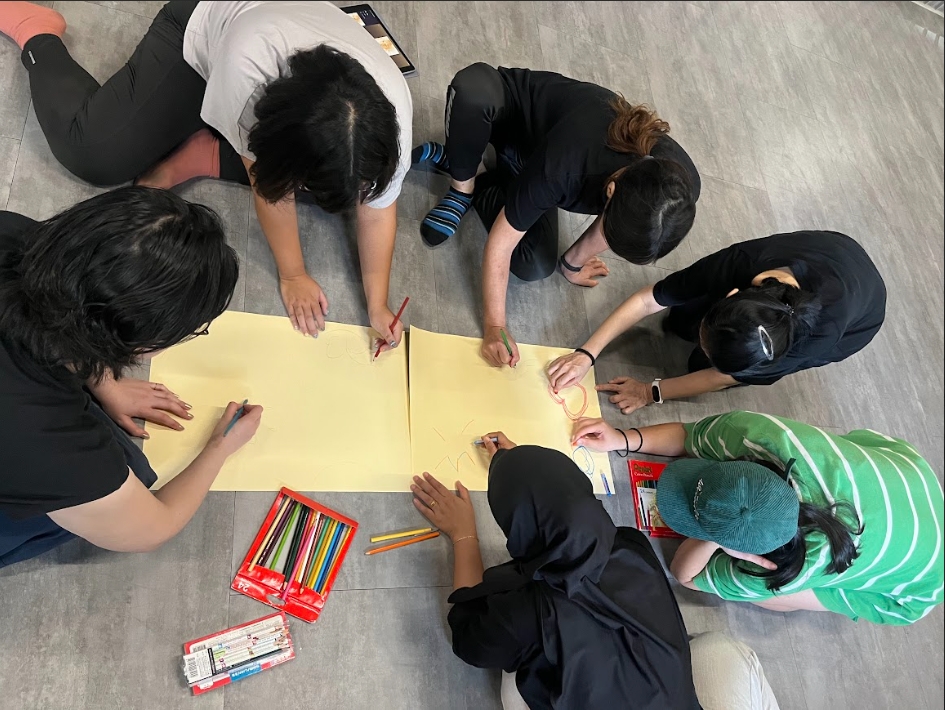
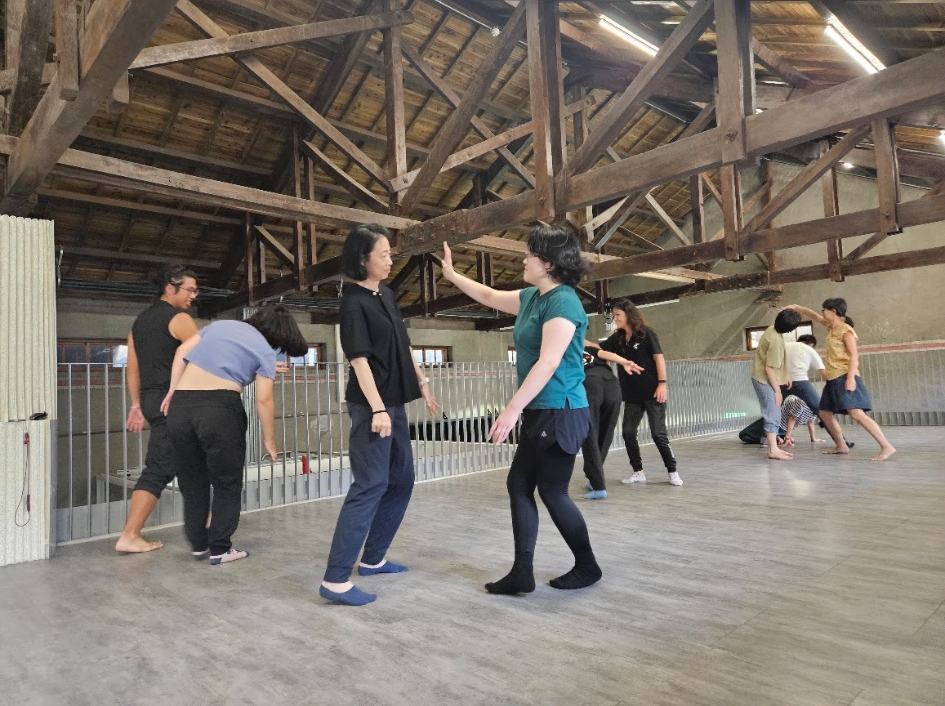
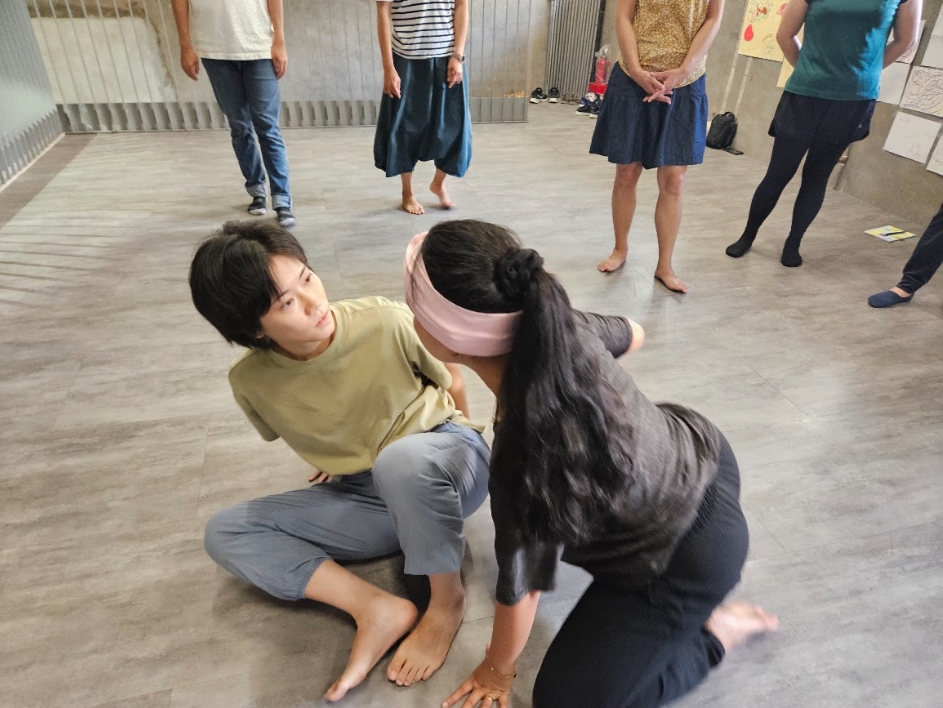
Rehearsal In Studio
By applying the methods used in the workshop, Yu Ning and I continued the process in the studio
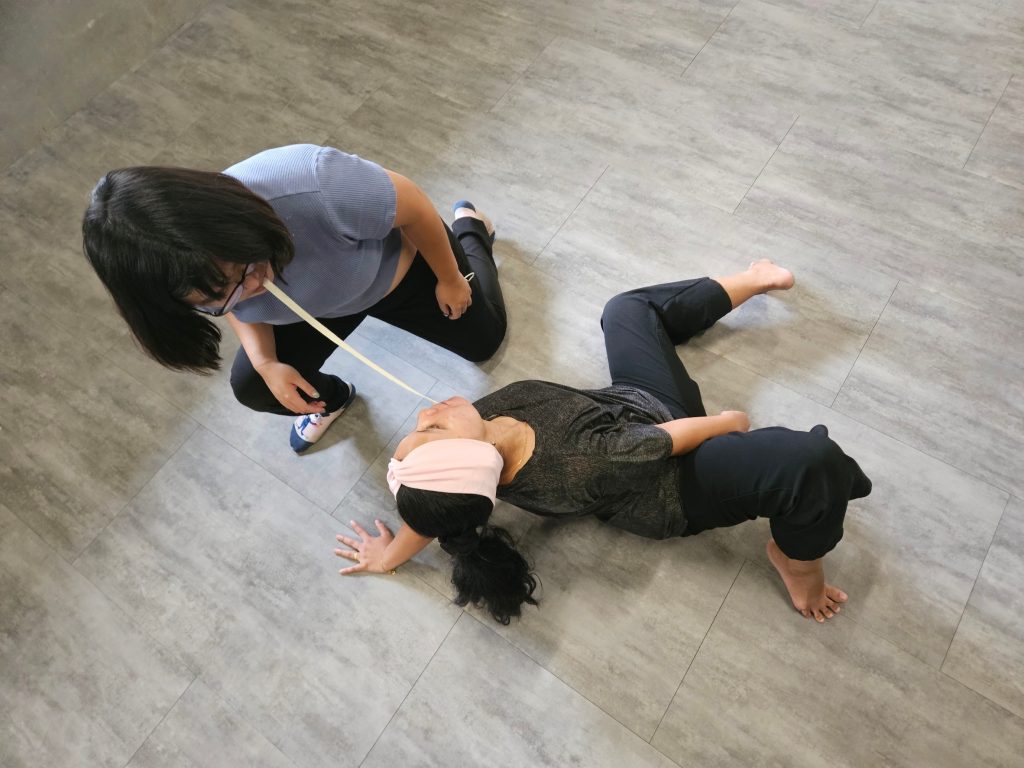
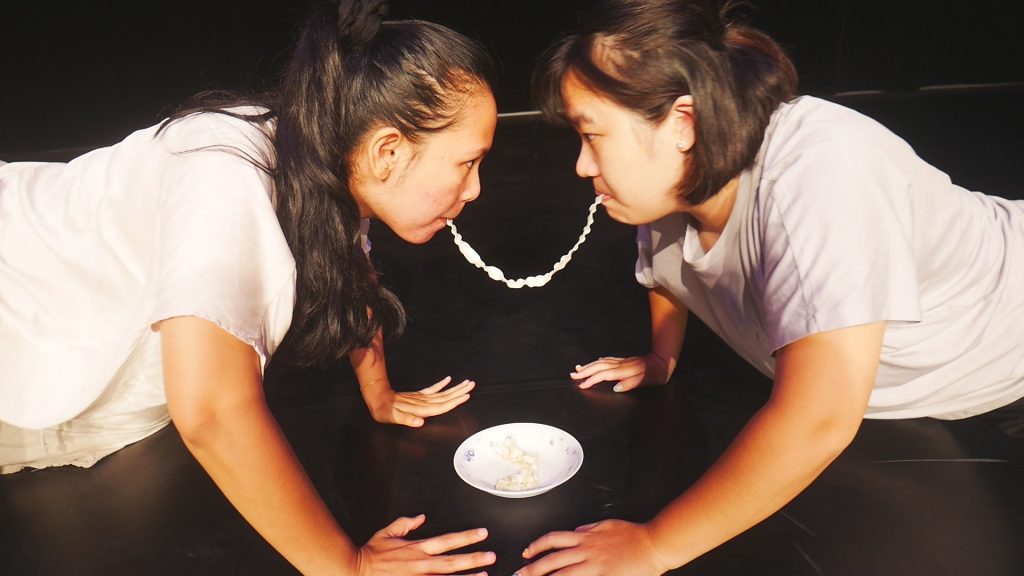
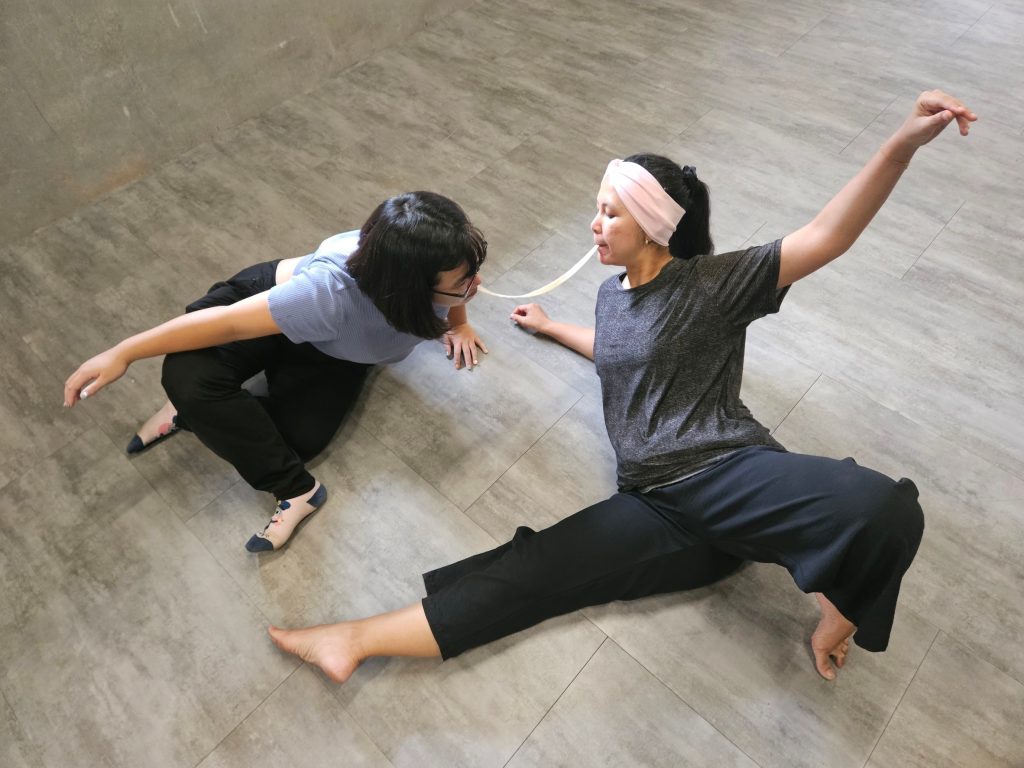

Sharing Session In Taipei
The sharing session was held to gather input and feedback from individuals outside the process, allowing us to gain insights or responses that would be valuable for advancing to the next stage. This session was conducted in a relaxed atmosphere, during which we presented various materials gathered throughout the research process. We displayed the mind maps created at the beginning of the process, showcased documentation from field research, and shared some rehearsal videos. At the end of the session, we held a Q&A segment. Hearing the feedback and responses from the participants made us very enthusiastic about continuing this process to the next step.
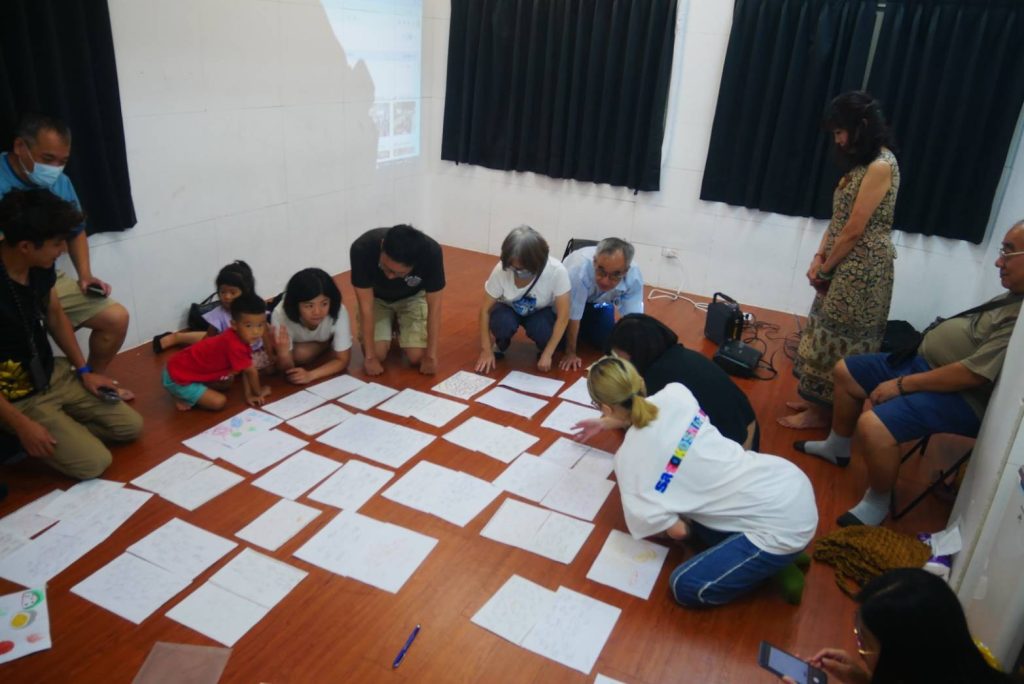
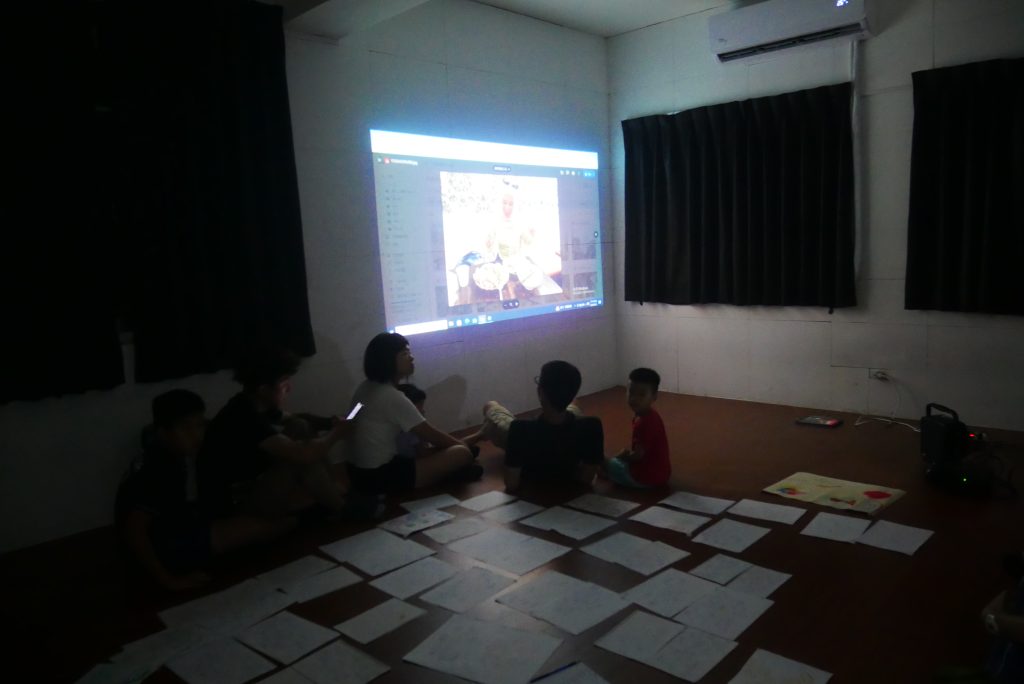
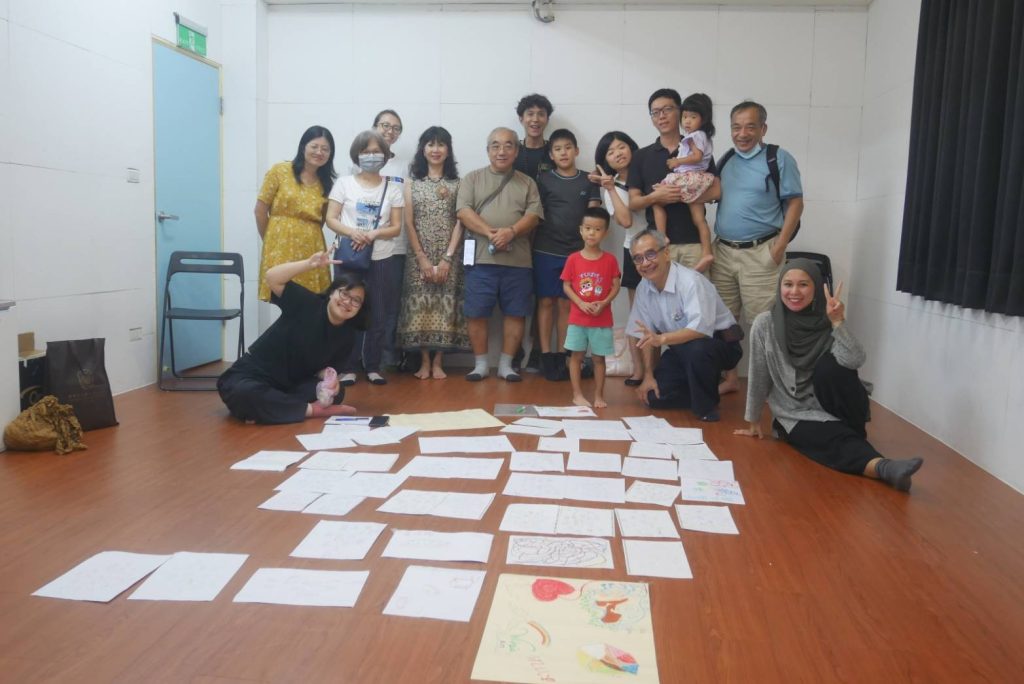
The videos used in the sharing session can be viewed through the following link:
https://drive.google.com/drive/folders/13CHXF_tEQydWqzrKBlCf80oV2a-pFwcZ

